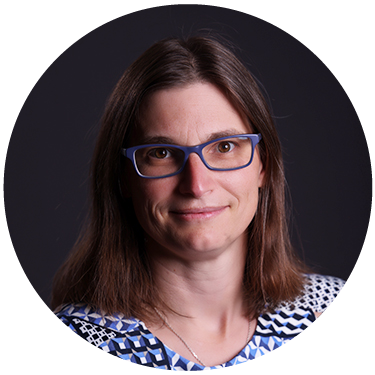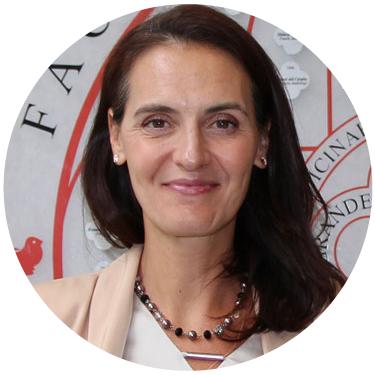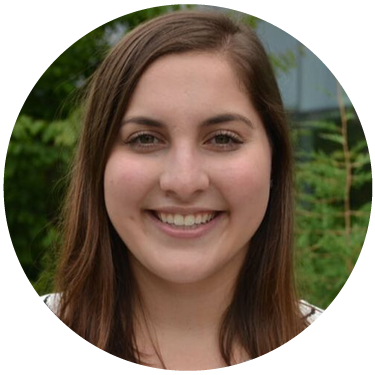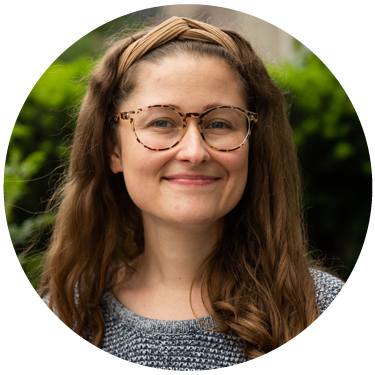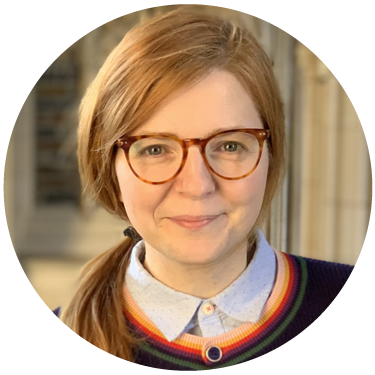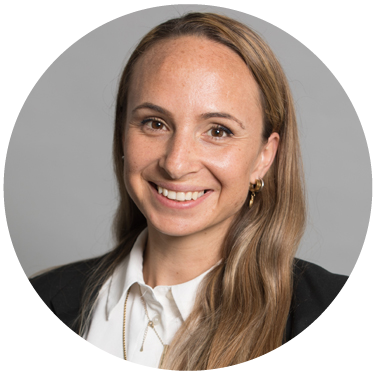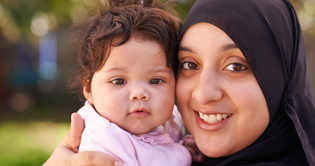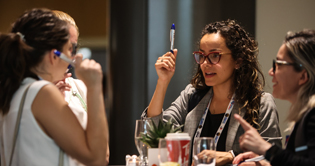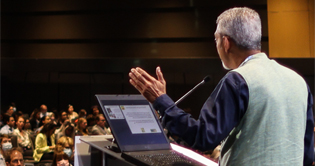904 researchers,
375 family advocates
& 3239 frontline workers
got trained in KBHN-sponsored
programs and interventions this year.
Cultivating Changemakers
Kids Brain Health Network is strengthening knowledge and skills in Canada’s neurodevelopmental research community—including family participants in research—and among people serving families directly.
Aimed at students and researchers, KBHN’s national training program offers:
- Hands-on experience in KBHN’s research and implementation projects
- Workshops and webinars on topics that help to develop the core competencies that are crucial to KBHN’s mission and vision
- A rich variety of awards and internships
- Networking, learning and presentation opportunities at KBHN’s annual conference
Equipping the next generation of people working to improve the lives of children with NDDs will pay dividends for years to come. Current and former trainees are active in sectors that include academia, industry, healthcare and government.
This year, 207 trainees took part in KBHN-supported research projects and internships. 84 of them were new to the network. Meanwhile, KBHN launched a new partnership with The Centre for Implementation to teach trainees and investigators how to design, implement, spread and scale change. So far, 15 people have earned an Implementation Support Specialist certificate through this initiative.
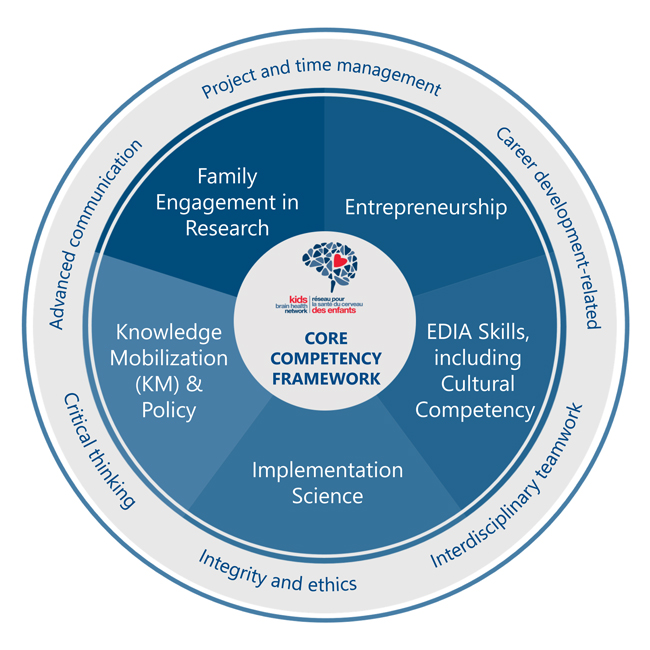

Sponsored by KBHN and administered by CanChild, a 10-week online course called the Family Engagement in Research (FER) Course brings families and researchers together to learn from each other about how to build a productive partnership. By doing so, it aims to shape the future of Canadian neurodevelopmental research, anchoring it in the real-life needs of children and their families.
FER-course graduates who want to not only partner in research but also become FER leaders and advocates in their communities and organizations can proceed to the FER Leadership Academy, which uses small-group discussions, projects and mentorship sessions to help them build upon their skills.
Team
Dr. Andrea Cross, Connie Putterman, Donna Thomson, Dr. Samantha Micsinszki, Rachel Martens,Alice Kelen Soper, Dr. Dayle McCauley, Dr. Kinga Pozniak, Sara Pot and Dr. Jan Willem Gorter, all of the CanChild research centre at McMaster University
Highlights of 2022-2023
This year saw 79 researchers and 58 family members complete the FER Course, while eight researchers and 13 family members graduated from Leadership Academy. Additionally, the FER Course began spreading beyond Canada’s borders, with a Dutch adaptation and a Netherlands-based cohort.
In November, KBHN CEO Nicola Lewis presented the FER Program to the House of Commons Standing Committee on Science and Research (SCSR), which highlighted it in a recent report as an example of how to unlock the benefits of citizen science in the field of health. Ultimately, the SCSR recommended that the Canadian Institutes of Health Research include civic engagement in the criteria for evaluating funding applications. This could help to amplify the voices of people who are facing health challenges and result in more inclusive and impactful research and policy.
Early Career Investigator & Mentorship Awards
These awards strengthen the research programs of early-career professors and investigators at universities or institutes. It allows them to recruit excellent trainees, foster their connections to community partners and build their capacity as researchers in the field of neurodevelopmental disabilities (NDDs).
Amount
$100,000 is contributed over two years. $50,000 is co-funded by KBHN and Brain Canada while the other $50,000 is from an eligible partner.
2022-23 Awardees
Dr. Elizabeth Condliffe
(University of Calgary) 
Dr. Tatiana Ogourtsova
(McGill University) 
KBHN-Mitacs Awards
These awards fund projects that enhance services and supports for children with neurodevelopmental disabilities (NDDs) and their families across Canada. Trainees and their academic supervisors collaborate with a non-academic organization to make progress on real-world challenge areas.
Amount
Up to $20,000, comprising a $5,000 contribution from KBHN that supplements contributions from Mitacs and a partner organization.
2023 Awardee
Carly Magnacca
(York University) 
These awards give trainees the opportunity to generate and share data that will inform autism policy and practice in Canada, with broader implications for all neurodevelopmental disabilities.
Amount
$40,000 over 18 months. There are five fellows in total; KBHN is funding two of them.
2022-23 Awardees
Angela MacDonald-Prégent
(McGill University) 
Dr. Amber Rieder
(Duke University) 
This practicum gives KBHN trainees experience in policy development, writing for an audience of policymakers and facilitating engagement with community partners.
Amount
A $4,000 stipend and support to present at both the Canadian Autism Leadership Summit and the KBHN Annual Conference.
2022-23 Awardees
Alexandra Minuk
(Queen’s University) 
Christiane Gwendolin Roth
(University of Calgary) 
Dr. Preeti Kar
(University of British Columbia) 
Outstanding KBHN Trainee Member Award
This award recognizes a trainee’s outstanding contributions and commitment to KBHN.
Amount
$1,500, as well as registration and a travel award to attend the KBHN Annual Conference.

Vanessa Tomas
(University of Toronto and Bloorview Research Institute) 
Outstanding KBHN Trainee Member Award
This award recognizes a trainee’s research achievements.
Amount
$1,500, as well as registration and a travel award to attend the KBHN Annual Conference.
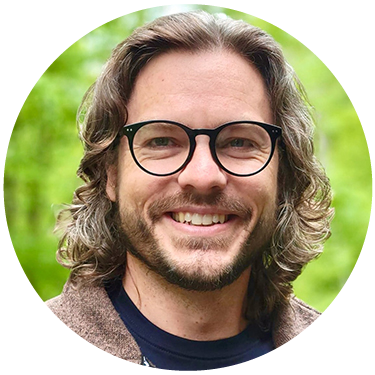
Jeffrey McCrossin
(McGill University) 
Outstanding KBHN Mentor/Supervisor Award
This award is presented to a researcher or professional who provided inspiring supervision or mentorship to KBHN trainees.
Amount
$1,500, as well as registration and a travel award to attend the KBHN Annual Conference.

Dr. Lucyna M. Lach
(McGill University) 
Outstanding KBHN Leadership Award in Family Engagement in Research
This award celebrates the contributions of people with lived experience and/or their caregivers to neurodevelopmental disability research.
Amount
$1,500, as well as registration and a travel award to attend the KBHN Annual Conference.

Dr. Genevieve Currie
(Mount Royal University) 

